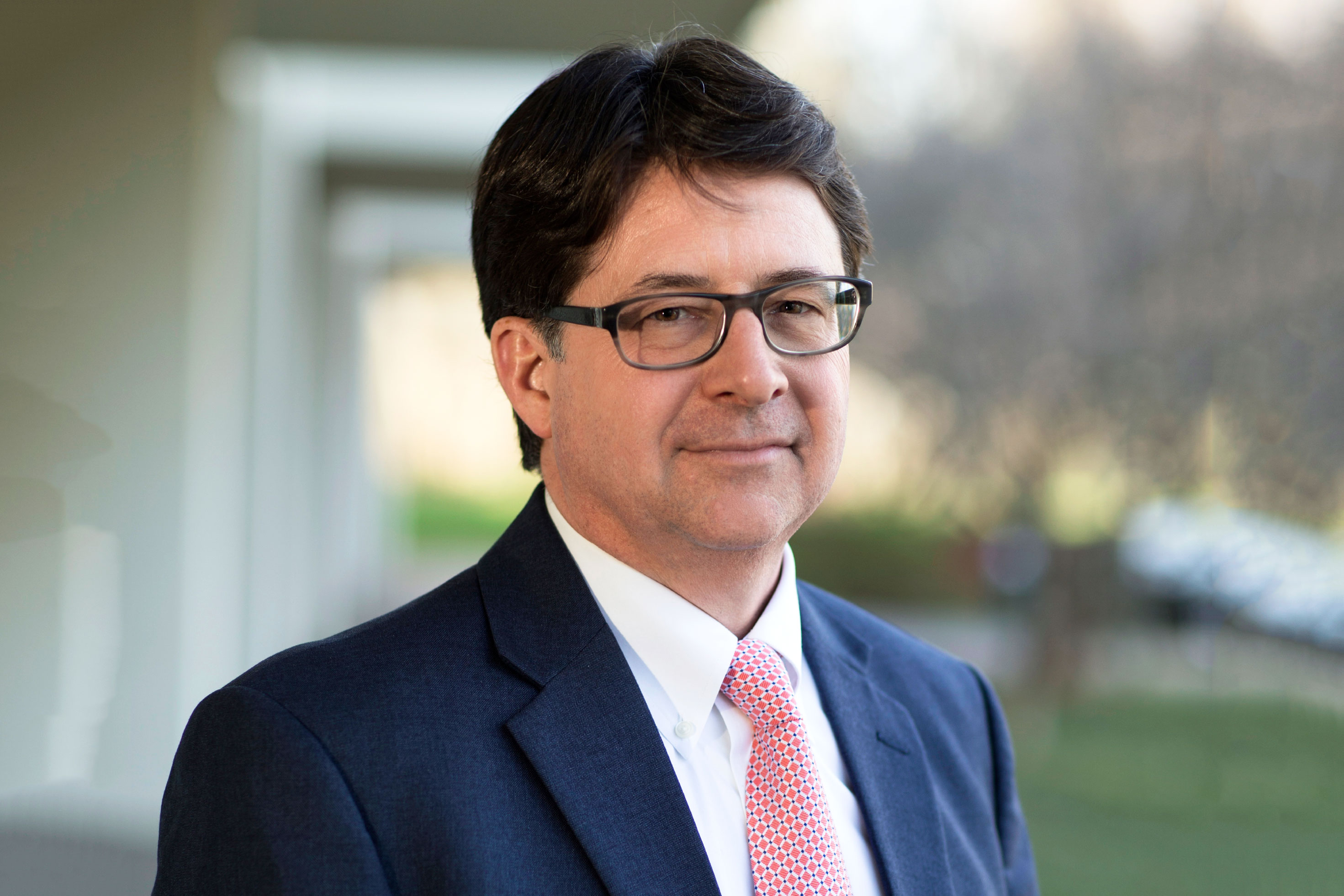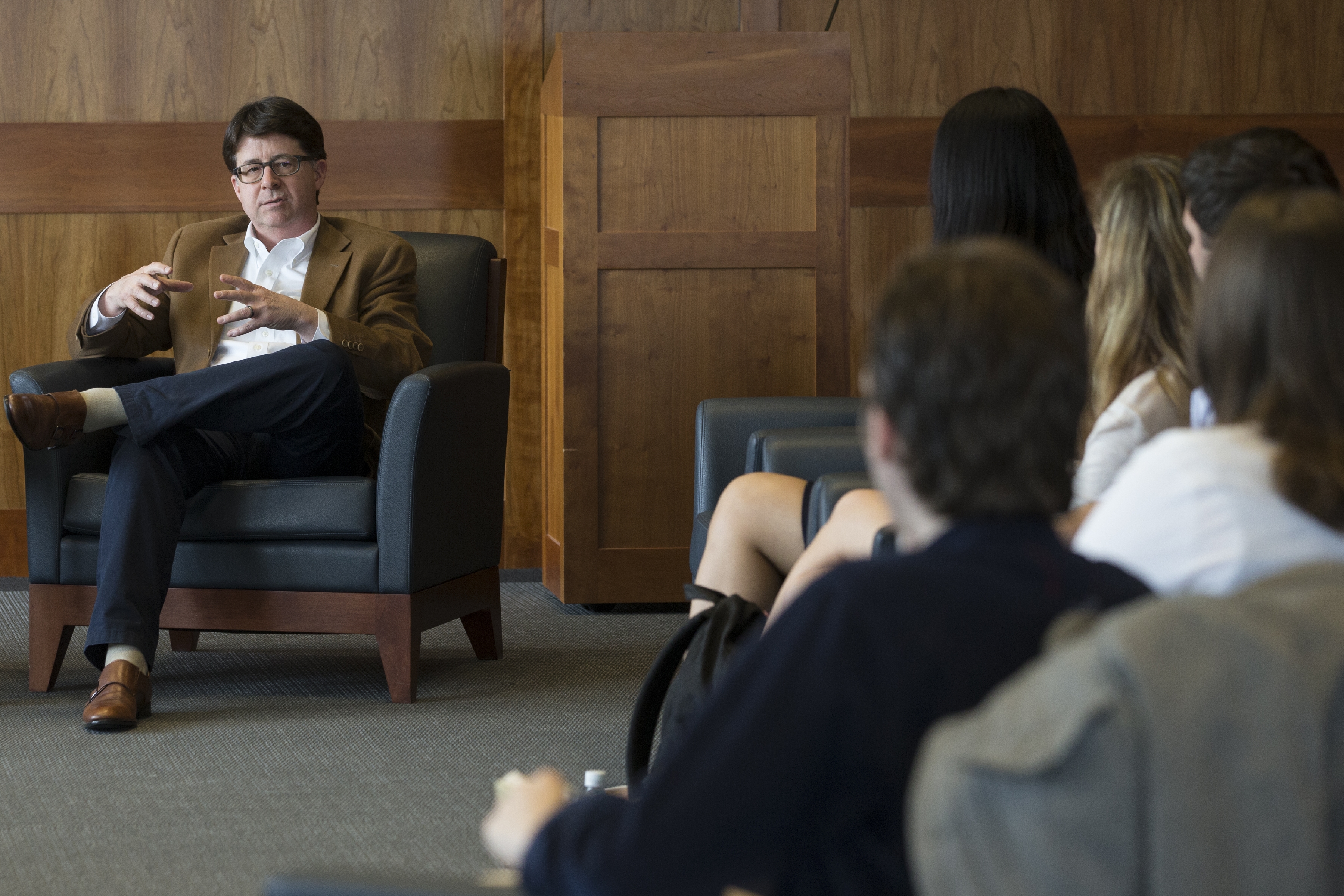A young man whose legal troubles became fodder for household conversation after Netflix’s popular documentary, “Making a Murderer,” is in the news again.
Brendan Dassey, who was convicted in 2007 along with his uncle, Steven Avery, for the rape and murder of a woman named Teresa Halbach, was set to be released from jail Friday. His conviction had been overturned in August. But a federal appeals court blocked Magistrate Judge William Duffin’s release order.
Avery’s lawyer was Dean Strang, a 1985 graduate of the University of Virginia School of Law. Strang is in big demand because of his views on criminal justice reform.
He spoke with UVA Today about the latest developments in the “Making a Murderer” legal saga as well as his return to Grounds to help teach a January term course.

Dean Strang was featured in the Netflix documentary series "Making a Murderer."
Q. Why did a federal appeals court block the order?
A. It didn’t explain. I would be speculating, but my guess would be, “Look, for the moment at least, the state courts have upheld the conviction; the crimes are serious,” and until the court of appeals reaches a decision on the merits, it may have just thought it better to preserve the status quo. That is speculation, because there was no explanation in the court of appeals order.
That is a little unusual, but then again, the state filed an emergency motion in a compressed time frame.
Q. In his release order, Judge Duffin said Dassey’s confession, which he later retracted, was coerced. What do you think?
A. I think his confession was involuntary and always have. Indeed, Jerry Buting, my legal partner in the Avery case, and I argued as much at Steven Avery’s sentencing back in 2007. In interviews of Brendan Dassey over three days, there was consistent manipulation of a young man who clearly had learning disabilities and lack of experience dealing with the police. The police supplied and suggested facts to him, which was a departure from ordinary, non-coercive interview techniques.
And it wasn’t just one manipulative statement by the police. It was a barrage of promises of leniency or inducements to expect leniency and outright deceit about what information the police actually had. They said, “Oh, Brendan, we already know all of the facts, but we can’t help you unless we hear it from you.” That one was repeated a number of times. Another deception was, “You know, you’re not going to be in any trouble. We don’t see you as a bad guy here. We just need the truth from you.”

These are false statements to a pretty vulnerable 16-year-old boy without much sophistication or intellectual ability; the kind of false statements that make a statement coerced and very well may get you a confession that is false.
Q. Are you surprised that this case has been drawn out as long as it has? Do you think Dassey has any hope of getting out of prison?
A. I do think he has a hope of a new trial. The nature of federal habeas review is that you can’t go to federal court until you have exhausted every remedy in state court, so it’s always slow. Judge Duffin understandably took his time to review that record thoroughly and to look very closely at all three of the interviews with Brendan and the trial evidence against him. He had to watch hours of interviews with this young man and then produced a 91-page written decision, which is just meticulously documented and carefully reasoned. The reality is that all of that takes time, and as I say, you don’t even get to federal court until years of pursuing remedies in state court have proved fruitless.
Q. Since “Making a Murderer” was aired, you have been highly sought for speaking engagements. Are things slowing down?
A. There have been over 140 speaking engagements this year so far. Things will slow down soon. I’m giving three separate talks today, for example. I’ve got two more extended trips in 2017 and then a number of one-day speaking engagements.
Q. Why stay so busy with this?
A. I think there is a good opportunity right now to have a broad public discussion about criminal justice. I think people are engaged in these issues.
During the primary season, presidential candidates from both parties were discussing criminal justice reform. This interest, which is at high tide right now, runs from the relationship of police agencies with the communities they serve to all phases of the judicial system. I want to be part of that conversation while there is great interest in these issues.
Q. Does it leave much time for family?
A. It has involved some juggling this year. My wife has been very supportive. My dog has been bewildered. [Editor’s note: Strang’s dog, Rufus, is half-standard poodle, half-Wheaten terrier.]
Q. You are joining law professors Molly Shadel and Robert Sayler in a January-term course called “Persuasion.” Can you describe it?
A. It’s about oral persuasion and rhetorical skills. It is designed to help students who may be afraid of public speaking, or inexperienced at it, to acquire some confidence and competence in speaking publicly in a variety of different settings – certainly the persuasive settings that are required of lawyers, but also trying to get people comfortable giving a eulogy or a toast. An occasional speech, in other words. It will entail getting them up on their feet every day and [it will] offer some interesting reading.
Molly and Robert invited me to join them this year and it was too good an opportunity to pass up, to have a week in Charlottesville.
Most of the readings will be from Molly and Robert’s book, “Tongue-Tied America.” I will introduce some work by a University of Michigan law and literature professor named James Boyd White, who is a preeminent thinker in the area of speaking, writing, language, and law.
I hope that after a week, the students will come out with measurably increased confidence in their ability to speak publicly and competence at holding an audience.
Media Contact
Article Information
November 19, 2016
/content/uva-law-grad-making-murderer-lawyer-talks-latest-case-developments

